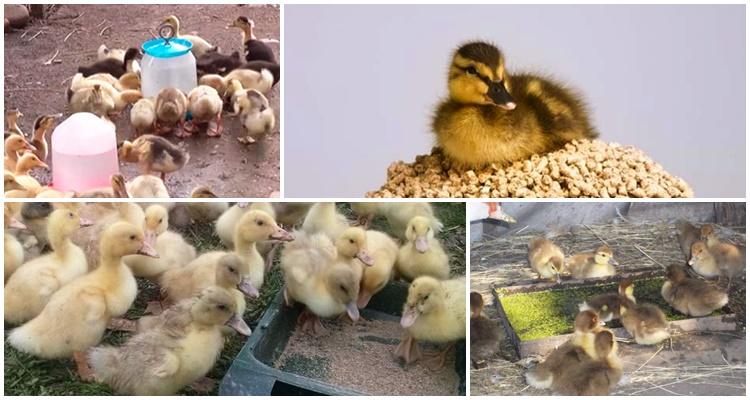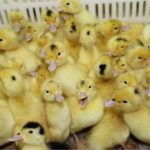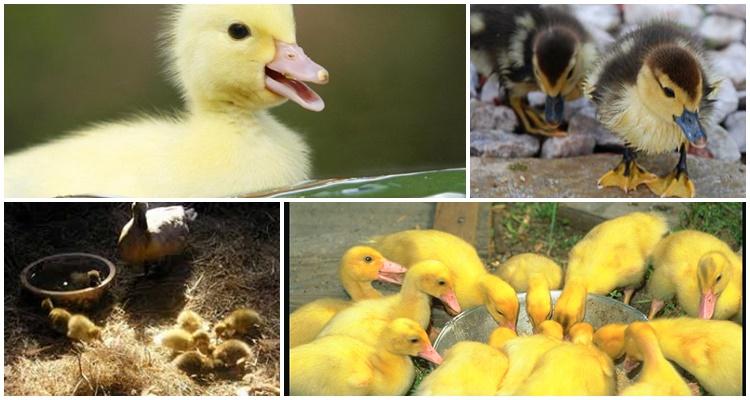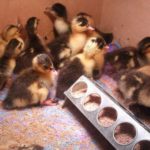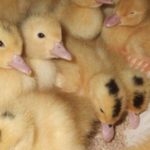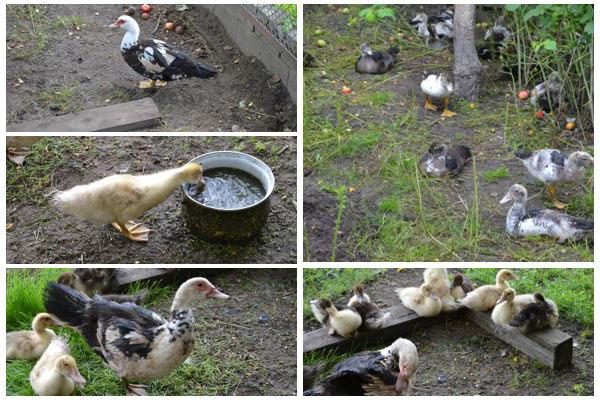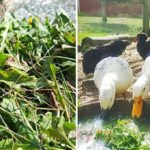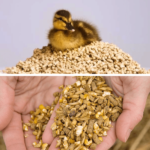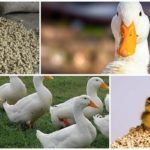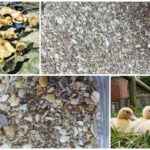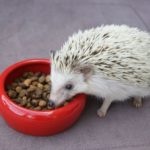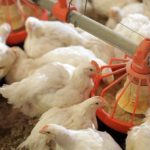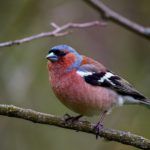Successful duck breeding depends on many factors. One of the key conditions is proper nutrition. Chicks need a balanced diet. Therefore, the food must contain a sufficient amount of vitamins and minerals. Thanks to this, the ducklings will be strong and strong. Therefore, many novice farmers are interested in the pressing question: what is the best way to feed ducklings at 1 month of age at home?
What to feed ducklings?
Most of the beneficial substances that month-old chicks require are present in greens. However, ducklings need to be given more than just grass. Their diet should include vegetables, grains, and peelings.It is also acceptable to use other food scraps.
The content of all useful elements in the diet of birds is of no small importance. These include fiber, sodium, phosphorus and calcium. Chicks also need crude protein and amino acids. When compiling a daily menu for birds, it is recommended to take their age into account.
Newborns
Immediately after birth, chicks usually refuse food. However, there is no need to worry. While in the egg, ducklings receive an abundance of nutrients. Therefore, they should not feel hungry on the first day. The birds look quite healthy and do not need feeding.
At the same time, they need to be provided with a sufficient amount of water. It is recommended to start watering birds in the first minutes of life. The fact is that newborn chicks often experience dehydration. To prevent this condition, they need to be given water. It is recommended to do this using a pipette. Initially, it is useful for chicks to be given a weak solution of potassium permanganate.
Daily allowance
It is permissible to start feeding one day after the birth of the chicks. For rapid growth of ducklings, it is recommended that they be given boiled eggs in the first few days. It is recommended to first cool and chop the product.
If day-old birds do not want to eat from a bowl, it is worth pouring a small amount of food on the floor near the feeder.
Some farmers sprinkle crushed eggs on the backs of the chicks. Under natural conditions, birds are accustomed to eating moving food. Therefore, they will instinctively peck food from the backs of other ducklings. On the 3rd day you can give the chicks cottage cheese. However, it should be non-greasy.
In the first week, it is recommended to feed the birds at intervals of 2-3 hours.This means that they must eat food at least 6 times a day. By the end of the first week, you can introduce chopped nettle or other greens into your diet. The exceptions are poisonous herbs and clover. It is also permissible to use compositions based on chopped herbs, cottage cheese and eggs.
It is important to consider that giving untreated nettle to chicks is prohibited, as it can cause a stomach burn and cause irritation.
Weekly
Ducklings of one week old can be given special starter feed. At the same time, birds of this age can eat as much as they want. Therefore, it is worth regularly pouring fresh food into the feeder. From the 2nd week, the birds happily eat grains crushed to flour. The diet should also include crushed wheat, corn, and oats. Birds can be fed barley, millet or sorghum. During this period, ducklings benefit from boiled buckwheat.
In the summer, it is permissible to let week-old ducklings out for a walk and provide them with access to open water. At the same time, their walks should certainly be monitored.
Two weeks
Ducklings over 2 weeks old can be fed with ready-made dry formulas. From day 15 they can eat a maximum of 3-5 times a day. In this case, it is better to include wet mash in the diet. They have a more crumbly consistency and do not stick together. The composition should include crushed wheat, bran, barley. You should exclude cottage cheese and eggs from your diet. It's better to use root vegetables instead.
The diet of two-week-old ducklings must include fresh cucumbers, zucchini, and cabbage. They also need carrots and potatoes.In addition, it is permissible to make a mixture of fermented milk products. To do this, use whey or sour thick milk.
Three weeks
Starter feed should not be given to ducklings for a very long time. This food contains a lot of proteins. From 3 weeks, ducklings require mixtures containing corn and wheat flour. They also need feed yeast, sunflower cake, and fishmeal.
At three weeks of age, ducklings should be constantly walking. In summer it is permissible to walk birds near the house. This will help them get food on their own and sunbathe. In hot weather, ducklings spend a lot of time on ponds and eat duckweed. However, at night the chicks must return to the poultry houses. Provided they have free range from 3 weeks, it is permissible to feed the birds 2 times.
Menstruation
At 1 month, birds can continue to be fed with formulations based on boiled root vegetables, vegetables, and chopped peas. They are also allowed to give fish and meat and bone meal, cereals, and feed yeast. In addition, it is permissible to include leftover food, cleaning, and insects into the menu.
It is prohibited to include fine flour in the menu. It fades and sticks together. This can lead to blockage of the nasal cavity and the appearance of respiratory pathologies. The majority of the diet of birds of this age should consist of green food.
After a month
At the age of 1.5 months, ducklings weigh 2 kilograms and have soft and juicy meat. To feed two-month-old ducklings, you need to use 300 g of feed. In this case, it is permissible to use cereals, feed yeast, and mineral supplements. Birds also need fish and meat and bone meal.
How many times a day?
The number of feedings depends on age. Day-old chicks are fed 6-7 times a day. Two-week-old ducklings require approximately 5 feedings per day. If kept freely, 2-3 meals are enough.
What should you not give?
When fattening young ducks, the following should not be used:
- citrus fruit;
- spinach;
- iceberg lettuce;
- eggplants, green tomatoes, raw white potatoes;
- poisonous plants;
- fresh milk and cereals with it added.
Compiling a diet for ducklings has a number of features. For bird breeding to be successful, it is important to provide them with a balanced diet with sufficient vitamins and minerals.

